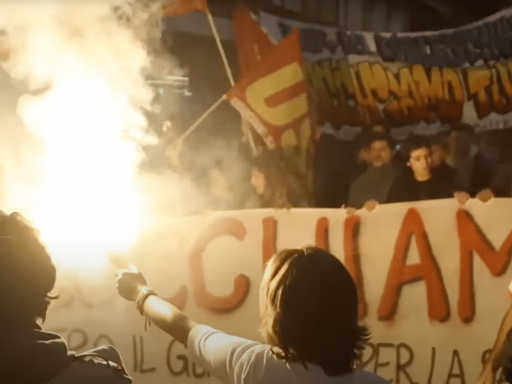Israeli occupation forces have attacked 13 boats from the Global Solidarity Flotilla as they headed towards the Gaza Strip. The flotilla is carrying activists and humanitarian aid aimed at breaking the blockade imposed on the Strip for years. Overnight, the flotilla organisers confirmed that 30 other boats are still sailing towards Gaza, despite the Israeli attack.
Flotilla attack sparks widespread global anger
The Israeli attack has sparked widespread anger in several countries around the world. Emotional mass demonstrations in Europe, including Greece, Spain, Sweden, Belgium and Italy, have spread organically. In Germany, protesters closed the main train station. Meanwhile, in Geneva, Switzerland, there were widespread calls for demonstrations. In Britain, hundreds of people are expected to take to the streets of London and marched to the Prime Minister’s residence, chanting slogans condemning the attack.
The protests also spread to Latin America, with marches in Mexico and Argentina, while regional governments condemned the attack in the strongest terms. In Turkey, a demonstration in Istanbul quickly took hold.
Official condemnations and diplomatic moves
At the official level, reactions condemning the Israeli attack poured in, with Bolivian President Luis Arce describing the attack as “brutal” and “a flagrant violation of international law,” stressing that “silence is complicity” and calling for global mobilisation to confront “this new brutality.”
In a notable diplomatic escalation, Colombian President Gustavo Petro announced the expulsion of all remaining members of the Israeli diplomatic mission in his country, considering what happened to be an “international crime.” He also revealed that Israel had detained two Colombian women while they were aboard the flotilla in international waters and demanding their immediate release.
This move is an extension of Colombia’s hardline stance, having previously severed diplomatic ties with Tel Aviv in 2024 in protest against the war on Gaza, while maintaining limited consular representation.
For its part, the French Foreign Ministry announced that it was closely monitoring the movements of the Steadfast Fleet, stressing that the safety of French citizens participating in the convoy was a “top priority.”
Venezuela condemned the Israeli attack as “cowardly piracy” and a systematic means of starvation and extermination, noting that “the real threat to world peace is Zionism,” which it described as “a racist colonial ideology that violates international law.”
For its part, the Chilean government expressed its deep concern, considering the interception of the ships a violation of freedom of navigation and the law of the sea, and called on Israel to respect international humanitarian law and protect the fleet’s crews and volunteers.
The Iranian Foreign Ministry also condemned the attack, calling it an “act of terrorism” and a “flagrant violation of international law,” asserting that the occupation continues its policies of ethnic cleansing, which must be held accountable internationally.
Arab positions: Calls for criminalisation and urgent action
In Tunisia, Hamma Hammami, secretary-general of the Workers’ Party, called for escalating popular pressure, including surrounding the US embassy in the country, demanding the immediate criminalisation of normalisation and asserting that what happened was “a crime that began in Tunisia,” in reference to the participation of Tunisian activists in the flotilla.
In Algeria, the Algerian Coordination for the Support of the Palestinian People called for urgent official action by the government and the need to intensify diplomatic efforts to confront repeated Zionist attacks and support the Palestinian right to end the siege and occupation.
Featured image via YouTube screenshot/Guardian News
By Alaa Shamali
From Canary via this RSS feed


